Deodorant and breast cancer
Deodorants and other body products that contain aluminum have been suspected of increasing the chances of breast cancer. This claim, however, is not agreed upon. The American Cancer Society claims that most breast cancers start closet to the armpit, because this is where more breast tissue resides, and not necessarily because of deordorant use. Some researchers point out that aluminum is stored in fatty tissue. They also point out that an ingredient by itself, may not cause as much problems as when other potential toxic ingredients are combined. "Aluminium and breast cancer: Sources of exposure, tissue measurements and mechanisms of toxicological actions on breast biology" claims that aluminum promotes "gene instability".
It is not worth the risk of using aluminum based body products that can interfere, especially, with herbal breast enhancement.
There is an alternate inexpensive solution to using deodorants with aluminum in them. A natural and effective antiperspirant and deodorant is a mix of half each of vinegar and water. White vinegar or apple cyder vinegar will do. The vinegary smell goes away, and this is more effective than baking soda.
Menstrual phases
The menstrual cycle will be divided into 5 phases, to simplify their timing: Menstruation, Proliferative, Ovulation, Secretory and Premenstrual.
Follicular phase is divided between menstruation and proliferative phase. Menstruation is when the uterus lining is shed. The proliferative phase is from the end of menstruation until ovulation. This is the time when the uterus rebuilds to prepare for potential pregnancy.
Luteal phase has been divided into secretory and premenstrual phase. The secretory phase is when the corpus luteum is present and produces progesterone. Premenstrual phase begins when the corpus luteum disintegrates, and it ends at the beginning of menstruation.
Interesting Links:
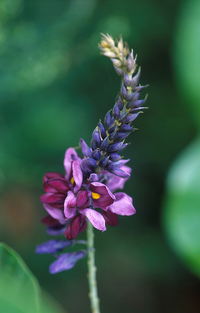
Pueraria
Kudzu is synonymous with the genus of Pueraria.
Pueraria mirifica has a reputation for breast enhancement, perhaps because it appears to have the right qualities of phytohormones, that many other herbs don't have by themselves. It appears to have follicle stimulating hormone, luteinizing hormone or estrogenic properties, and prolactin or progesterone qualities, which is a combination that should cause breast growth, but its hormonal qualities are still not for certain.
There are issues with Pueraria, in that it nurtures breast cells indiscriminately, whether they are tumorous or healthy, as is shown by how most tests of Kudzu or species within Pueraria show results on cancerous cell cultures. While Pueraria is not considered harmful, when there is no presence of malignant cells, there are alternate herbs that have anti-tumorous properties, and should also cause bust enhancement in the right proportions. In small amounts, and when there is no history of tumors, kudzu can be very useful in providing relief from menstrual symptoms. More about Pueraria...
Questions and Answers
Questions and answers about natural breast enhancement, and ebook.
Squash/Pumpkin; Cucurbita: seeds
About health benefits of winter squash (Cucurbita) seeds, including that of pumpkin seeds.
Suma: Brazilian Ginseng
About Suma (Hebanthe eriantha), and its reputation as Brazilian Ginseng.
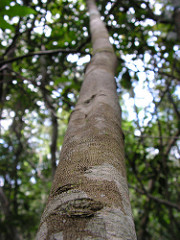
Maytenus: Chuchuhuasi, Gnikélé
About medicinal values of Chuchuhuasi, Chuchuhuasha, Chuchuaso, Gnikélé and other species of Maytenus. It is useful for alleviating menstruation discomfort, and for general nerve relief.
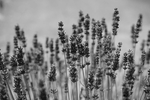
Lunar calendar
New lunar calendar with updating image of current moon phase, lunar dates for whole year, and percentage of Moon illumination. Lunar calendar is useful for keeping track of menstrual cycles.
Moved to breast.is
botanicalbe.is
Website moved from http://www.botanicalbe.is to breast.is domain.
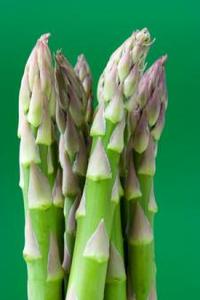
Article about asparagus; Shatavari.

Successful natural breast enlargement
Successful natural breast enlargement from last year, for someone I assisted with her NBE program. She used various methods, including breast pumping. However, herbal methods were most effective.
The first picture is from August 2014, and the later picture is from June 2015.
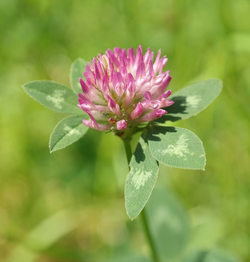
Article about clover.
Androgens' role in women's health
Androgen plays a role in women's health. Adrenal androgens play a role in growth spurts during puberty, and androgens also play a role in mood and libido. Estrogens are formed from Androgens by the process of aromatase, that occurs in ovaries, adipose and other tissues.
Androgen insufficiency in women is rare except in late reproductive years and afterwards. The most common cause for women of all ages is hormonal imbalances of corticotropin-releasing hormone (CRH), adrenocorticotropin (ACTH) and cortisol in a feedback loop between the hypothalamus, pituitary gland and adrenal glands. Corticosteroid medication can cause temporary adrenal insufficiency, but this can be explained by external hormones causing desensitization of hormone responses. A few symptoms of adrenal insufficiency are fatigue, general weakness, loss of libido, loss of appetite, depression and feelings of sickness.

Article about Pueraria...
Risks of surgical augmentation
There are risks and complications to any type of cosmetic surgery. Risks include botched operations, and psychological repercussions. The typical maximum lifespan of an implant is up to 15 years, then another surgery has to be done to replace or remove that, but this does not include a large percentage of women who have complications within 5 years of getting implants. There are also risks of silicone or saline bags leaking. There are also inconveniences such as scar tissue that forms around implants, and for some women, difficulties breastfeeding.
Opinion on cosmetic surgery
Cosmetic surgery and the idea of it should be made obsolete. It is useless as a desire, and vain. However, a different topic of reconstructive surgery, can be essential, and I hold this idea in high regard.

Which botanicals are chosen
When researching botanicals for breast health, breast enhancement and related purposes, I try to choose the ones that have anticarcinogenic or antitumor properties. There is more information available on botanicals that were tested to make cancerous cells grow, while sometimes this also causes growth for healthy cells, I avoid listing botanicals based on results from studies that show them stimulating unhealthy cells. Despite choosing botanicals with anticarcinogenic properties towards their target, or botanicals from studies on healthy cells, a hormone imbalance is also a cancer risk.
Future projects will be about literary scientific research on various breast topics, not limited to herbal breast enlargement, including herbal breast reduction, tuberous breasts, body hair, and herbal correction for inverted nipples. It is inadvisable to do anything physical to alter or influence breast shape or size. If possible, nutritional and botanical methods will be investigated for these purposes.
Theory on cancer treatments
When a well intended cancer treatment works against a specific cancer, the cancer's receptors usually become desensitized. This situation is also seen in the analogies of steroid and drug use, where more and more is needed to get a desired effect to a diminished body response and inability for bodily regulation. With receptor targeted therapy, the receptor must be re-sensitized for a cancer therapy to remain effective. This is often the case in receptor negative types of cancer. Otherwise, a stronger medicine is given, and it becomes less and less effective. Not all botanicals or substances with a specific hormone attribute have anti-cancer properties to be used for re-sensitization of receptor responses.
- Y Li, YY Yuan, SM Meeran, TO Tollefsbol. Synergistic epigenetic reactivation of estrogen receptor-α (ERα) by combined green tea polyphenol and histone deacetylase inhibitor in ERα-negative breast cancer cells. Mol Cancer. 2010; 9: 274. http://www.ncbi.nlm.nih.gov/pmc/articles/PMC2967543/
- Y Li, SM Meeran, SN Patel, H Chen, TM Hardy, TO Tollefsbol. Epigenetic reactivation of estrogen receptor-α (ERα) by genistein enhances hormonal therapy sensitivity in ERα-negative breast cancer. Mol Cancer. 2013; 12: 9. http://www.ncbi.nlm.nih.gov/pmc/articles/PMC3577460/
About Botanical Breast Enhancement ebook
'Botanical Breast Enhancement' explores the science of how breast development occurs, and it looks into the possibility of controlling this process after puberty. Basic human endocrinology is described as a basis for health and how hormones interact. Herbs have different properties, so their specific properties are explored to find the right combinations to work in conjunction with human endocrinology for herbal breast enhancement or herbal breast enlargement. Suggestions made in this book are limited to whole herbs or topical extracts. There are further insights such as relations with hormone imbalances.
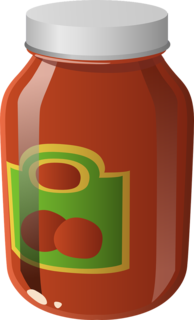
Lycopene is a cartenoid, but, unlike other cartenoids, it cannot be converted into vitamin A by humans and animals. Still, lycopene has an important role in human health as one of the most powerful botanical antioxidants known. Studies have shown lycopene to inhibit cancer growth, and it to have protective effects on healthy human tissue, including from mild radiation.
Reddish and pink fruits such as tomato, rosehips, watermelon, papaya, grapefruit, guava, apricots, papaya contain lycopene. Surprisingly, (natural) ketchup and tomato sauce contain many times more lycopene per weight than whole tomatoes.
Clarification about Progesterones and Estrogens
There is often confusion about the relationship between Progestogens and Estrogens. Each is a different category of hormone. Progestogens can be called Progesterones (plural), or Progestins. Progesterone (singular), is actually a specific hormone within the class Progestogens. Progestins is a term that means Progestogen, but it commonly refers to synthetic Progesterones. Of botanicals, there is no difference between the terms phytoprogesterone, and phytoprogestin, because there isn't a concept of synthetic botanical. Phytoprogesterone and Phytoprogestin are how progestogenic botanicals are referred to in medical texts.
Hormones within the class of Progestogens act similarly to each other, while hormones within the class of Estrogens act similarly within it's group. Still, there are minor differences in hormones within their grouping.
Many fruits have anti-cancer properties. Highlighted for their strong anti-cancer properties are pomegranate, papaya, pineapple, and graviola/soursop/guanabana.








